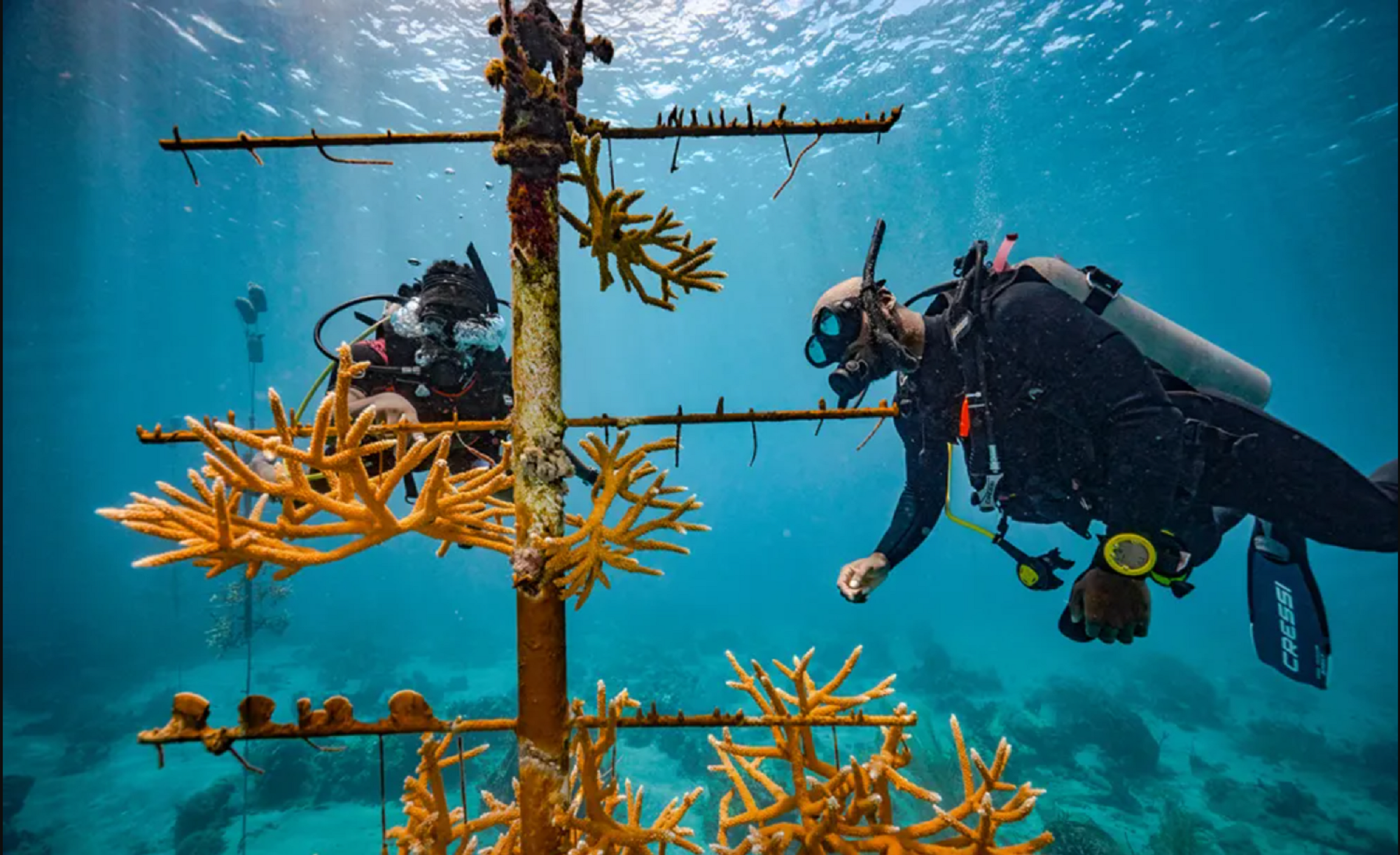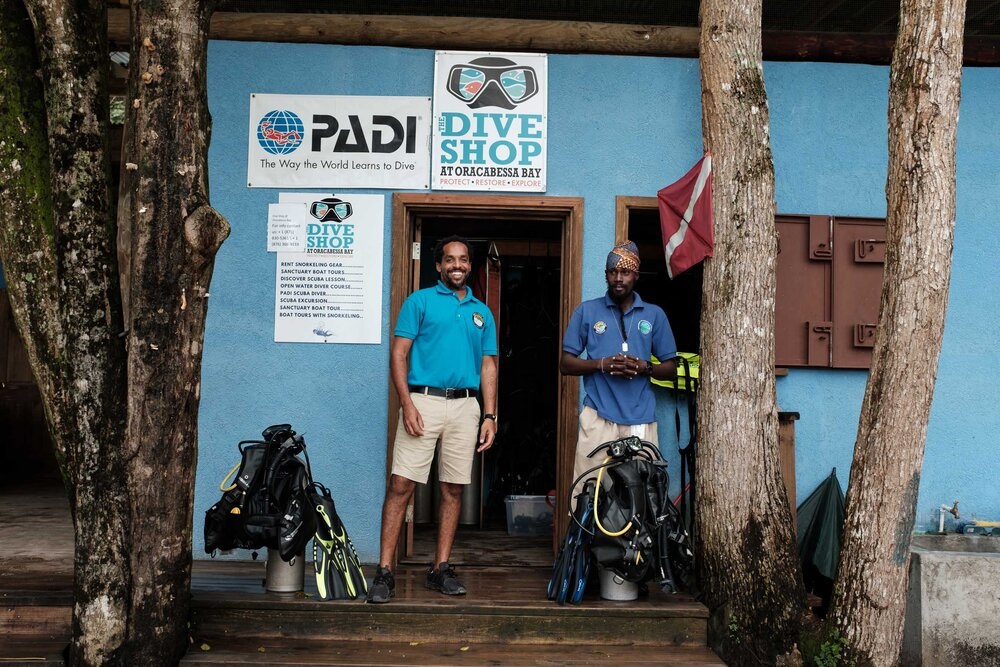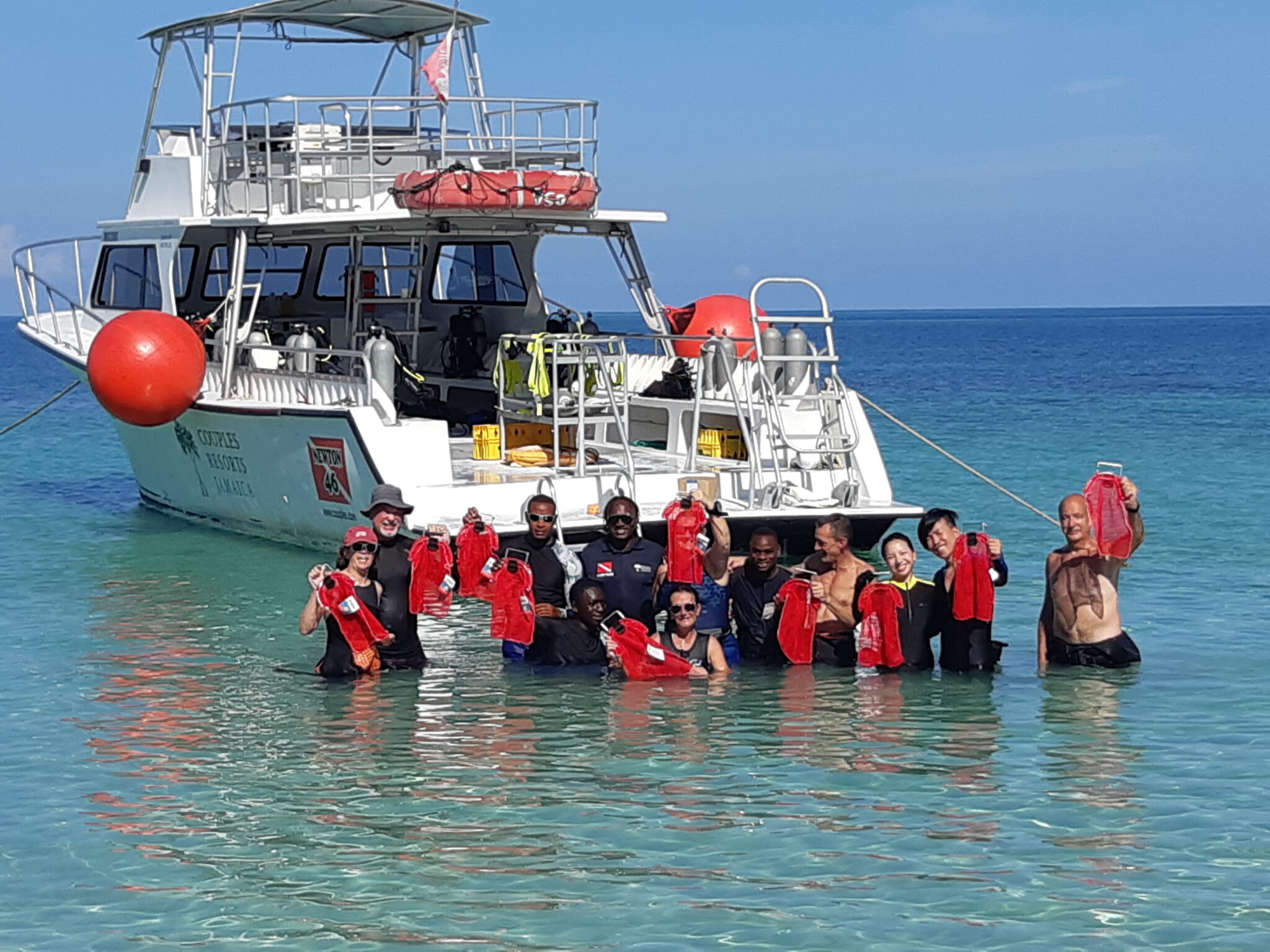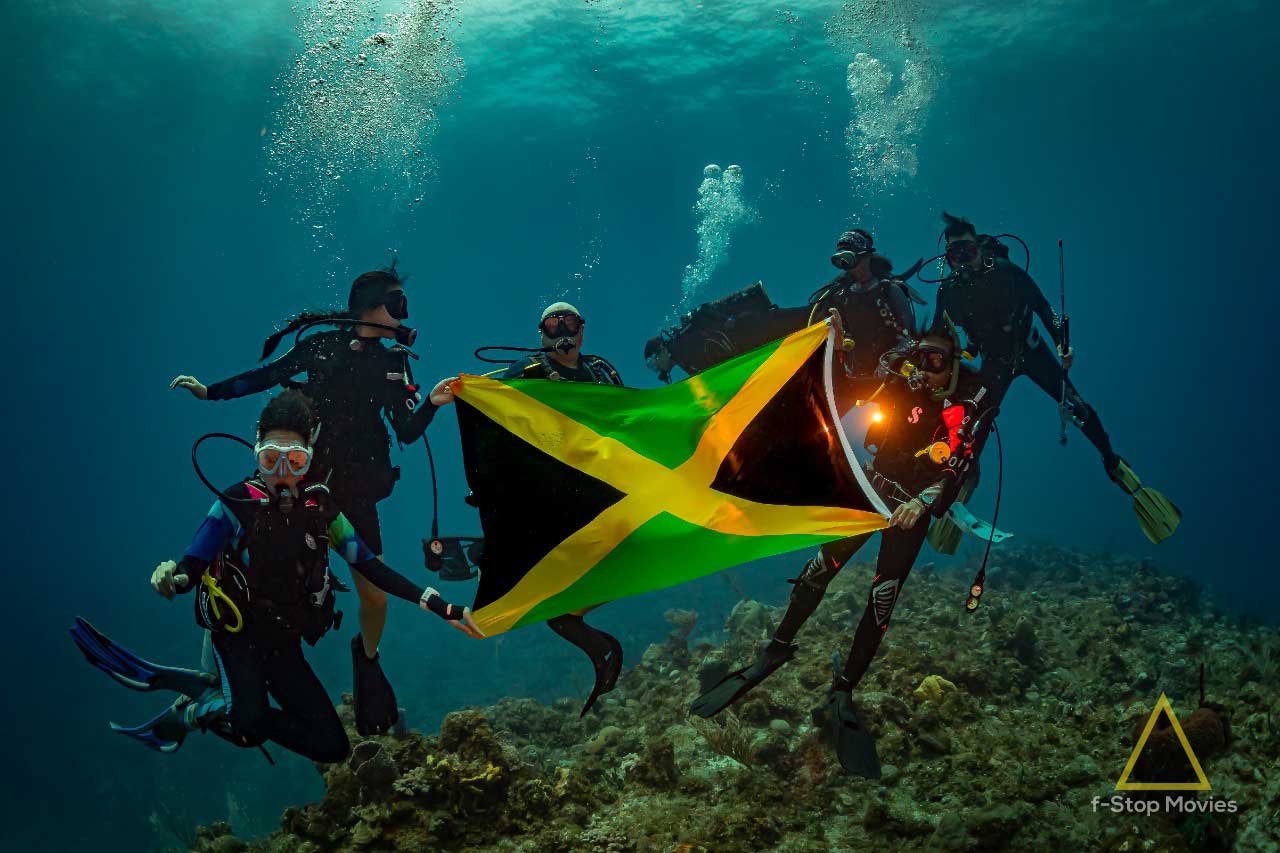Restoring reefs and removing marine debris are just a few of the ongoing ocean conservation projects in Jamaica. These critical efforts support the Caribbean reef system, which protects both humans and marine life.
According to data from the United Nations:
45% of fish species and 25% of coral species in the Caribbean are found nowhere else in the world. Without coral reefs, 25% of all marine life would die. Coral reefs provide a natural barrier against storms and decrease damage and flooding.Jamaica is the third-largest country in the Caribbean by size, and it has more than 30 marine protected areas (MPAs), fish sanctuaries and other conservation sites. In addition to country-wide efforts to protect Jamaica’s reefs, PADI Dive Centers and Resorts in Jamaica are making extra efforts to preserve their underwater environment.
 Photo courtesy of Sandals
Photo courtesy of Sandals
All Sandals locations in Jamaica have adopted dive sites and are Green Fins members. Dive briefings include a review of the 10 Tips to Save the Ocean and dive guides carry bags to collect any debris they may encounter during a dive.
Topside, Sandals resorts are working to eliminate single-use plastics. Behind the scenes, staff brainstorm and share ideas with other ecology-minded people from around the globe on the Green Fins Community Forum.
Through the The Sandals Foundation:
33,600+ corals have been planted. 82,300+ people have participated in environment and ocean awareness education. 193,500+ turtles have been safely hatched.In 2010, The Goldeneye Foundation created The Oracabessa Bay Fish Sanctuary, a marine protected area that includes several reefs and beaches — including James Bond Beach.
Since its creation, the Oracabessa Marine Trust reintroduced sea turtles and planted thousands of new corals to increase fish populations and encourage biodiversity. It also runs a dive shop.
The Dive Shop at Oracabessa (@thediveshop_oracabessa) offers dive tours, PADI courses and opportunities for divers to participate in coral restoration.

Certified scuba divers staying at Couples Resorts may participate in cleanup dives (when available), and the Couples’ Green Team participates in eco-friendly activities throughout the year. Nadeen Austin, Executive Assistant Manager of Couples Sans Souci and Tower Isle told The Gleaner, “Our Green Team members are constantly engaged in environmental ventures through the year, such as protecting turtle-nesting and releasing turtles, tree-planting exercises, recycling projects, and assisting at Tree Hill Primary with painting and grounds maintenance. We care for our environment.”
 Photo courtesy of Couples Resorts Jamaica
Photo courtesy of Couples Resorts Jamaica
Since the mid-1990s, Lady G’Diver’s founder, Janet Lee, has been active in ocean conservation. The dive shop is located in the East Portland Fish Sanctuary, an area she worked for years to protect, and a Mission Blue Hope Spot.
Lady G’Diver helped set up the first coral nurseries and was instrumental in establishing The Alligator Head Foundation, an NGO with a wet lab, turtle nurseries and mangrove growth farms that are open to visitors most of the time. Divers with sufficient training and experience may also visit the original coral gardens.
Does choosing an eco-friendly destination really matter? Yes, it does.
Jamaica’s East Portland Fish Sanctuary was inspired by the success of Cabo Pulmo, México. After years of overfishing, the local community created a protected area where marine life could thrive. Fishing boats were replaced by dive boats, and the local economy stabilized.
Ten years later, “Fish biomass [has] increased by 460%, bringing the reef to a level of biomass similar to that of pristine coral reefs that have never been fished. Whale sharks, manta rays, humpback whales and endangered sea turtle populations [have] rebounded.”
Where you choose to spend your holiday really does matter. By patronizing businesses that invest in ocean conservation, you encourage other businesses to do the same.
Not ready to plan a dive trip? Click the button below to learn about other ways you can support healthy oceans.
Other Ways to Support Ocean Health
Share This
